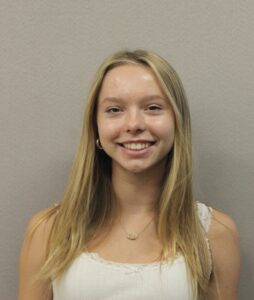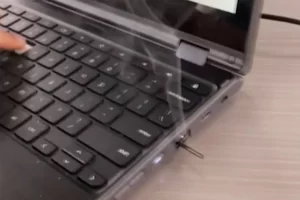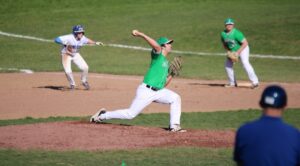By Lily McInerney
The traditional Harvard-Yale football game wasn’t so traditional last Saturday. Students at Yale and Harvard University stormed the football field protesting the use of endowments toward fossil fuel investments.
Students rushed onto the field carrying posters and soon the expected 150 protesters grew to around 500. One of these students who helped lead the protest, Caleb Schwartz, is a graduate of IHS.
“The mood was exuberant,” said Schwartz, senior at Harvard University. “Only 150 people were trained for the protest and in the initial groups who occupied the field, so when an additional 350 students ran onto the field to support us, students around me were crying. It was a beautiful moment. On the field, we chanted energetically and linked arms. There was also some fear, since we were ready to risk arrest for this cause and weren’t sure how the police would respond.”
Along with these students came police officers who charged protesters with disorderly conduct. Other fans booed these protesters and eventually administrators came to the field to persuade students to return to their seats. The students persisted for about half an hour chanting, “divest” and continued to do so from outside of the gates.
Matthew Planto, an Ivy League spokesperson, told the Harvard Crimson that he supports the right to protest, but believes that the game was not the right place to do so.
In a statement Planto wrote, “It is regrettable that the orchestrated protest came during a time when fellow students were participating in a collegiate career defining contest and an annual tradition when thousands gather from around the world to enjoy and celebrate the storied traditions of both football programs and universities.”
In response to this, Schwartz said, “Harvard and Yale are stuck in the past and destroying our future, so disrupting one of their oldest traditions to send our urgent message made sense. I love the Harvard community and believe that its professors, students, and alumni do a lot of good for the world (for the most part), but this does not excuse its administration’s complicity in the climate crisis.”
Schwartz believes in youth activists and encourages students who care about any issue to act now. He questions potential young leaders by prompting the question, “If not now, when?”






Be First to Comment